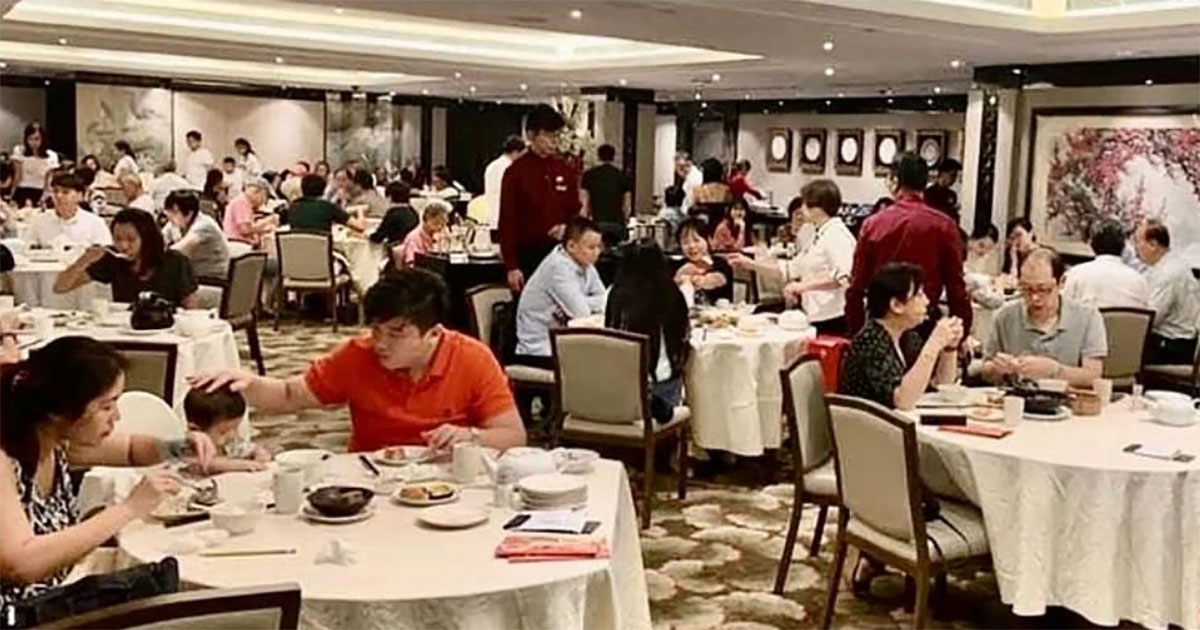Follow us on Telegram for the latest updates: https://t.me/mothershipsg
Some diners in Singapore are looking to bypass paying the 1 per cent extra in goods and services tax in 2023 by ordering and settling their bills for their Chinese New Year restaurant meals in advance now.
GST in Singapore will increase from 7 per cent to 8 per cent from Jan. 1, 2023, followed by another increase from 8 to 9 per cent on Jan. 1, 2024
With Chinese New Year just six weeks away on Jan. 22, some in Singapore have already planned ahead during these last few weeks of 2022, according to Shin Min Daily News.
Saving some money
With many restaurants already accepting bookings for the Year of the Rabbit Chinese New Year set menus next year, diners have stepped forward to make reservations to save on some costs.
The CEO of the Dian Xiao Er restaurant chain said some 70 per cent of diners have opted to pay in full in advance to bypass the additional 1 per cent in GST that would be included in the bill if payment is made next year.
Others are still hedging, as most of the remaining diners paid about half of the bill upfront, given that their plans might change at the last minute.
The head of Tung Lok Group also concurred that paying upfront in advance will help save money on taxes.
He said it is a mutual agreement between the businesses and customers and the practice of settling bills in advance is wholly acceptable, not unlike pre-ordering goods and services for consumption later on.
Could be corporate bookings
It was also noted that those who do opt to pay upfront do not just book one table.
Companies that want to bypass the additional GST costs next year will want to pay upfront, as the cost savings can be substantial if multiple tables are booked for a mass gathering of employees.
But with such corporate clients, payment upfront might be the norm more than the exception.
The regional director of Putien added that it could also be a matter of convenience for advance payment to be made by corporate entitites.
Costs likely to increase next year
However, another second-generation restaurant owner said it might not be viable for customers to pay upfront now for next year's meals as prices of raw ingredients might go up by then, especially during the Lunar New Year period when prices usually increase even more.
He said: "Even if the customer asks to pay in advance when placing an order, we will calculate the bill based on next year's price and factor in the 8 per cent GST."
Moreover, the supply chain might have already factored in the increases in costs.
A catering supplier added that it is not possible to ask for payment upfront from their long-time customers, as such a practice is out of place between established parties that have honoured their end of the deal, and given that prices will have to be charged according to the spot prices next year with the 8 per cent GST tagged on.
Dining out boom
Regardless of the upcoming price increases and inflationary pressures, it appears that the number of customers who made Chinese New Year reservations at restaurants has increased by nearly 20 per cent.
One factor was the closure of many restaurants during the pandemic, resulting in the worry that diners might not be able to get a table in time due to a shortage of supply, and given the pent-up demand.
The lifting of pandemic restrictions has also allowed mass dining to take place again, which could be a reason that bookings for 2023's Chinese New Year dining have surged.
Top photo via Shin Min Daily News
If you like what you read, follow us on Facebook, Instagram, Twitter and Telegram to get the latest updates.
